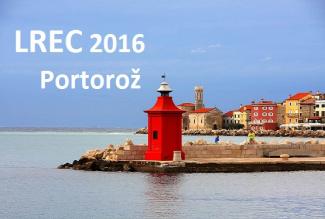
The work of Tilde's Research and Development team is being showcased at the Language Resources and Evaluation for Language Technologies (LREC) conference in Portorož, Slovenia.
At the event, Tilde's CEO Andrejs Vasiļjevs and Senior Researcher Mārcis Pinnis will present their findings in two research papers: Collecting Language Resources for the Latvian e-Government Machine Translation Platform (Roberts Rozis, Andrejs Vasiļjevs and Raivis Skadiņš. 2016) and Designing a Speech Corpus for the Development and Evaluation of Dictation Systems in Latvian (Mārcis Pinnis, Askars Salimbajevs and Ilze Auzina. 2016).
The first paper details the results of Tilde's work in developing a large-scale machine translation service for the Latvian government, Hugo.lv. The second paper explains Tilde's groundbreaking work in creating the world's first dictation system for Latvian, one of Europe's most complex, morphologically rich languages.
Tilde also contributed to a research paper with other industry leaders that provides a broad overview of the state of the art in European language technology: Fostering the Next Generation of European Language Technology: Recent Developments ― Emerging Initiatives ― Challenges and Opportunities(Georg Rehm, Jan Hajic, Josef van Genabith and Andrejs Vasiļjevs. 2016).
Since the first LREC held in Granada in 1998, LREC has become the major event on Language Resources (LRs) and Evaluation for Language Technologies (LT). The aim of LREC is to provide an overview of the state-of-the-art, explore new R&D directions and emerging trends, exchange information regarding LRs and their applications, evaluation methodologies and tools, ongoing and planned activities, industrial uses and needs, requirements coming from the e-society, both with respect to policy issues and to technological and organisational ones.
LREC provides a unique forum for researchers, industrials and funding agencies from across a wide spectrum of areas to discuss problems and opportunities, find new synergies and promote initiatives for international cooperation, in support to investigations in language sciences, progress and innovation in language technologies and development of corresponding products, services and applications, and standards.